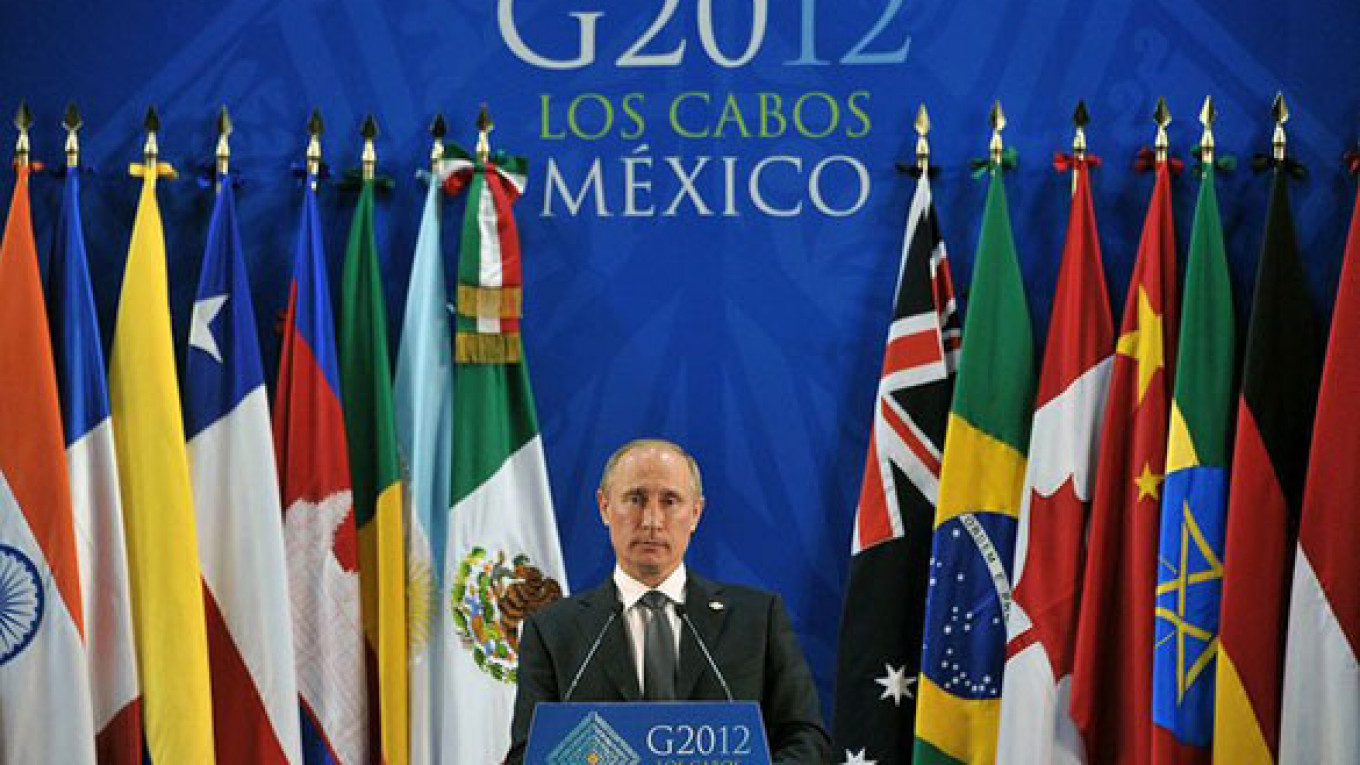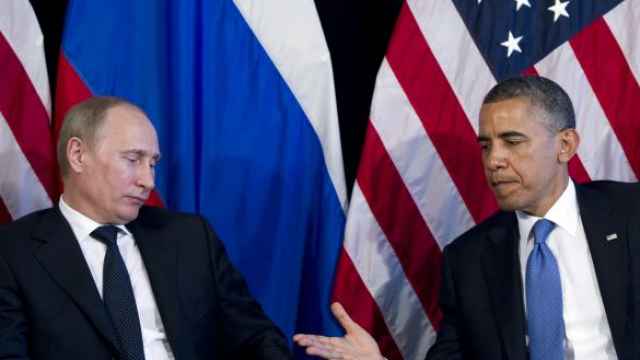President Vladimir Putin said he does not believe that the United States and Russia will manage to resolve their disagreements regarding the U.S. missile defense shield in Europe no matter who the U.S. leader is.
Speaking Tuesday at a news conference at the G20 summit in Los Cabos, Mexico, Putin said he saw no sign that the U.S. was ready to change its approach to the system, which Russia believes could threaten its nuclear deterrent.
"I think the problem of the missile defense shield will not be solved regardless of whether Obama is re-elected or not," Putin said, Interfax reported.
At a nuclear security conference in Seoul in March, Obama was caught in a hot mic incident telling former President Dmitry Medvedev that he would have more flexibility to negotiate a missile defense deal following November's U.S. presidential election.
Obama's likely opponent in the election, Mitt Romney, has signaled that he would take a harder line with Russia if elected, calling the country the United States' top geopolitical foe.
At Tuesday's news conference, Putin also commented on the so-called Magnitsky bill currently being considered in the U.S. Congress, saying Russia would block entry to a certain number of American citizens if the bill were passed.
The bill — named after Hermitage Capital lawyer Sergei Magnitsky, who died in jail in 2009 after investigating police and tax authorities for corruption — would bar travel to the U.S. by Russian officials believed to have been involved in human rights abuses, including the Magnitsky case.
Putin expressed puzzlement at the bill and said Russian authorities did not believe it deserved Congress's scrutiny.
"I don't know who needs this and why, but if someone does this, that's the way it will be — but it is not our choice," Putin said. "Regarding the law related to the tragedy that occurred with Magnitsky, if it is passed, then it's passed, but we do not believe it demands such attention from the American Congress."
A Message from The Moscow Times:
Dear readers,
We are facing unprecedented challenges. Russia's Prosecutor General's Office has designated The Moscow Times as an "undesirable" organization, criminalizing our work and putting our staff at risk of prosecution. This follows our earlier unjust labeling as a "foreign agent."
These actions are direct attempts to silence independent journalism in Russia. The authorities claim our work "discredits the decisions of the Russian leadership." We see things differently: we strive to provide accurate, unbiased reporting on Russia.
We, the journalists of The Moscow Times, refuse to be silenced. But to continue our work, we need your help.
Your support, no matter how small, makes a world of difference. If you can, please support us monthly starting from just $2. It's quick to set up, and every contribution makes a significant impact.
By supporting The Moscow Times, you're defending open, independent journalism in the face of repression. Thank you for standing with us.
Remind me later.






